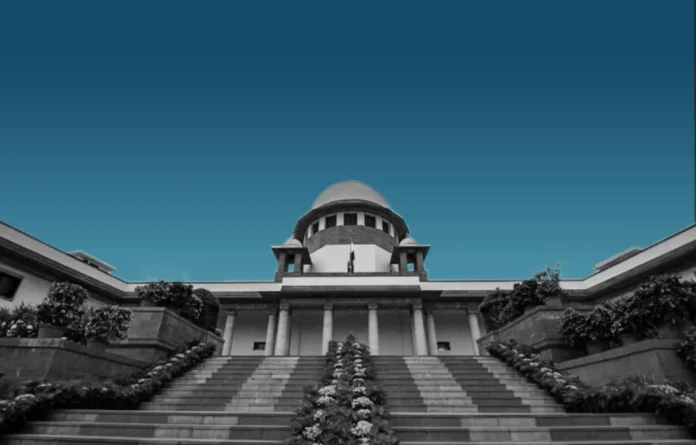The Bench of Chief Justice of India DY Chandracuhd, Justice JB Pardiwala and Justice Manoj Misra further set aside the Allahabad High Court order, which had struck it down earlier.
The top court of the country further held that the Madarsa Act, to the extent it regulated higher education in relation to ‘fazil’ and ‘kamil’ degrees, was in conflict with the UGC Act, and to that extent it was unconstitutional.
The Bench passed the order on a petition challenging the Allahabad High Court order of March 22, which struck down the ‘Uttar Pradesh Board of Madarsa Education Act 2004’ as unconstitutional.
The Apex Court held that the Act regulated the standards of education in Madarsas recognised by the board.
The Act was consistent with the positive obligation of the State to ensure that the students studying in recognised Madarsas attained a level of competency, allowing them to actively participate in society and earn a living, noted the Bench.
It said Article 21A and the Right to Education Act have to be read consistently with the right of religious and linguistic minorities to establish and administer educational institutions of their choice. The Board, with the approval of the State Government, could enact regulations to ensure that religious minority educations imparted secular education of requisite standards without destroying their minority character.
It held that the Madarsa Act was within the legislative competence of the State Legislature and traceable to Entry 25 of List 3. However, the provisons of the Madarsa Act seeking to regulate higher education degrees such as ‘fazil’ and ‘kamil,’ were unconstitutional as they were in conflict with the UGC Act enacted under Entry 66 of List 1.
The provisions of the Madarsa Act were reasonable as they subserved the need for regulation and secured the interests of the minority community. They regulated the standards of education, conducted examinations and conferred certificates, allowing the students to pursue higher education.
While the Madarsas provided religious instructions, their primary aim was education, observed the Apex Court.
It said the High Court erred in holding that the education provided in Madarsas violated Article 25(1)(a).
The petitions were filed by Anjum Kadari, Managers Association Madaris Arabiya(UP), All India Teachers Association Madaris Arabiya (New Delhi), Manager Association Arbi Madarsa Nai Bazar and Teachers Association Madaris Arabiya Kanpur.
Senior Advocates Abhishek Manu Singhvi, Mukul Rohatgi, PS Patwalia, P Chidambaram, Menaka Guruswamy, Salman Khurshid and MR Shamshad, along with AOR Rohit Amit Sthalekar and Advocates Sankalp Narain, MA Ausaf, HP Sahi, Yash Johari and Utkarsh Pratap, appeared for the petitioners.
The State of UP was represented by Additional Solicitor General KM Nataraj, while Senior Advocate Swarupama Chaturvedi appeared for the NCPCR. Senior Advocate Madhavi Divan appeared for an intervenor opposing the Act.


